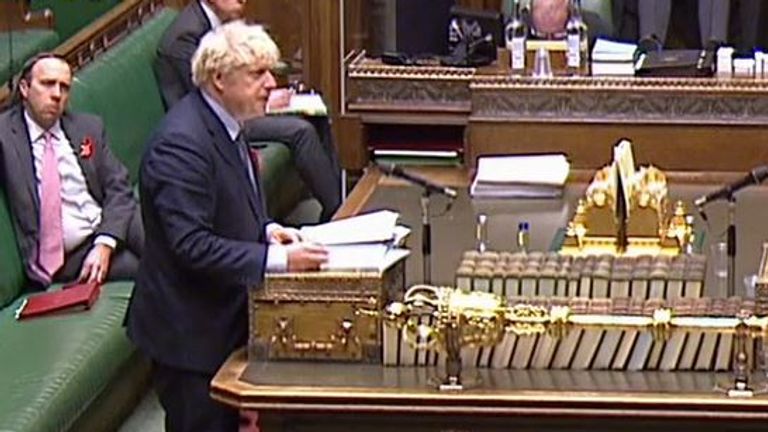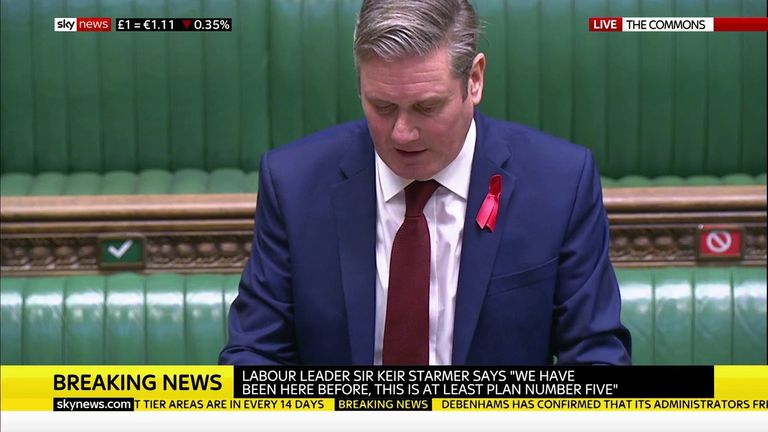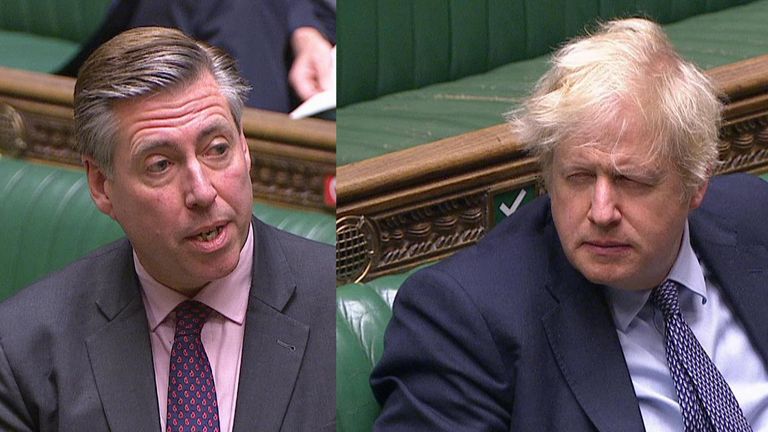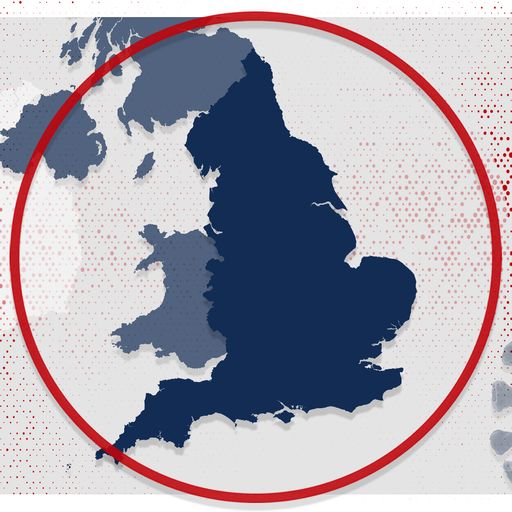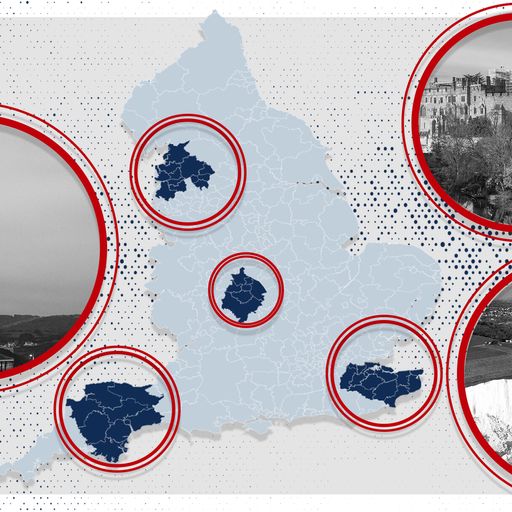England's new tiered system of coronavirus restrictions has been approved by MPs, although more than 50 Tory MPs rebelled against the measures.
The result means that the COVID-19 measures will come into effect when England's second lockdown ends tomorrow.
As it happened: Commons debate on COVID tiers
However, the size of the Conservative rebellion - which was bigger than that of the Tory opposition to the introduction of the lockdown last month - demonstrates that the prime minister has a job on his hands to maintain support for the regional restrictions.
It comes as it was announced that another 13,430 people have tested positive for COVID-19 in the UK.
And a further 603 people have died within 28 days of testing positive for coronavirus, taking the total number of deaths to 59,051.
A government spokesman said the tiered system will "help to safeguard the gains made during the past month and keep the virus under control".
They added: "We will continue to work with MPs who have expressed concerns in recent days."
The new measures were approved by 291 votes to 78, a majority of 213.
A total of 55 Tories rebelled, with 52 voting against the COVID-19 restrictions and a further two acting as tellers for the noes.
Former Conservative Julian Lewis, who had the whip removed last year but usually votes with the government, also opposed the measures.
A total of 15 Labour MPs and eight DUP MPs voted against the tiered system.
Former Labour leader Jeremy Corbyn, who is currently sitting as an independent, voted against.
Conservative MP Jamie Wallis was recorded as voting both for and against, which is usually regarded as a formal abstention.
A further 16 Tory MPs had no vote recorded, including former prime minister Theresa May and ex-minister Andrea Leadsom.
However, while some will have been abstentions, others may have had valid reasons for not casting a vote either way.
Sky's chief political correspondent Jon Craig said he had been told by MPs in the chamber that Boris Johnson was "standing at the door of the 'aye' lobby" and "begging" Tory MPs to come over from the "no" lobby and vote with the government.
The announcement from Labour ahead of the vote that the party would abstain meant that Mr Johnson was never in danger of losing.
Sir Keir Starmer said that while his party has "serious misgivings" about the restrictions, it would not be in the national interest to vote them down when the virus still poses a "serious risk".
He accused the PM of "overpromising and under-delivering" by pursuing short-term measures that then "bump into the harsh reality of the virus".
The Liberal Democrats, who have 11 MPs in the Commons, also abstained.
Tory opposition has been driven by the fact that 99% of England's population will fall under the two toughest tiers, which are stricter than the previous tiers in place before lockdown.
About 32 million people - covering 57.3% of England - will fall into Tier 2.
But 23.3 million people - 41.5% of the population - are going to be placed in Tier 3, the highest level of restrictions.
Only the Isle of Wight, Cornwall and the Isles of Scilly have been designated for Tier 1.
In Tier 3 areas, hospitality venues will be closed in the run-up to Christmas unless they can provide takeaway or delivery services, and households will be forbidden from mixing indoors.
Many MPs have questioned the basis for the tier decisions and raised fears about the economic impact.
Conservative rebel leader Mark Harper said it was a matter of "regret" that so many MPs "felt forced to vote against" the measures.
"The House of Commons has spoken and we hope that the government will take on board the comments we have been making on the need for better data and modelling, regional cost-benefit analysis and on trusting MPs with the information they need to make such important decisions on behalf of their constituents," he said.
Addressing the Commons earlier, the PM told MPs there was a "compelling case" for the tiered system.
He acknowledged "people's feelings of injustice" about the tiers they have been placed in, while also hinting that the government could look at smaller areas when deciding tiering allocations in the future.
Mr Johnson also promised pubs which do not serve food would get a one-off payment of £1,000 in December.
However, the British Beer & Pub Association has said that on its own, the money was "nowhere near enough to stave off thousands of pub closures".
:: Subscribe to the Daily podcast on Apple Podcasts, Google Podcasts, Spotify, Spreaker
A number of Tory MPs lined up to criticise the tiered system ahead of the vote.
Sir Graham Brady, chair of the 1922 Committee of backbenchers, said: "In the absence of that serious and compelling case, I have no choice but to oppose these measures."
Former Brexit secretary David Davis told MPs that a "policy of maximum protection for minimum damage" was required and "this policy is not it".
Another former minister, Damian Green, said the plans lacked public backing, adding: "I've had the most angry emails over a weekend since the Dominic Cummings' trip to Barnard Castle."


